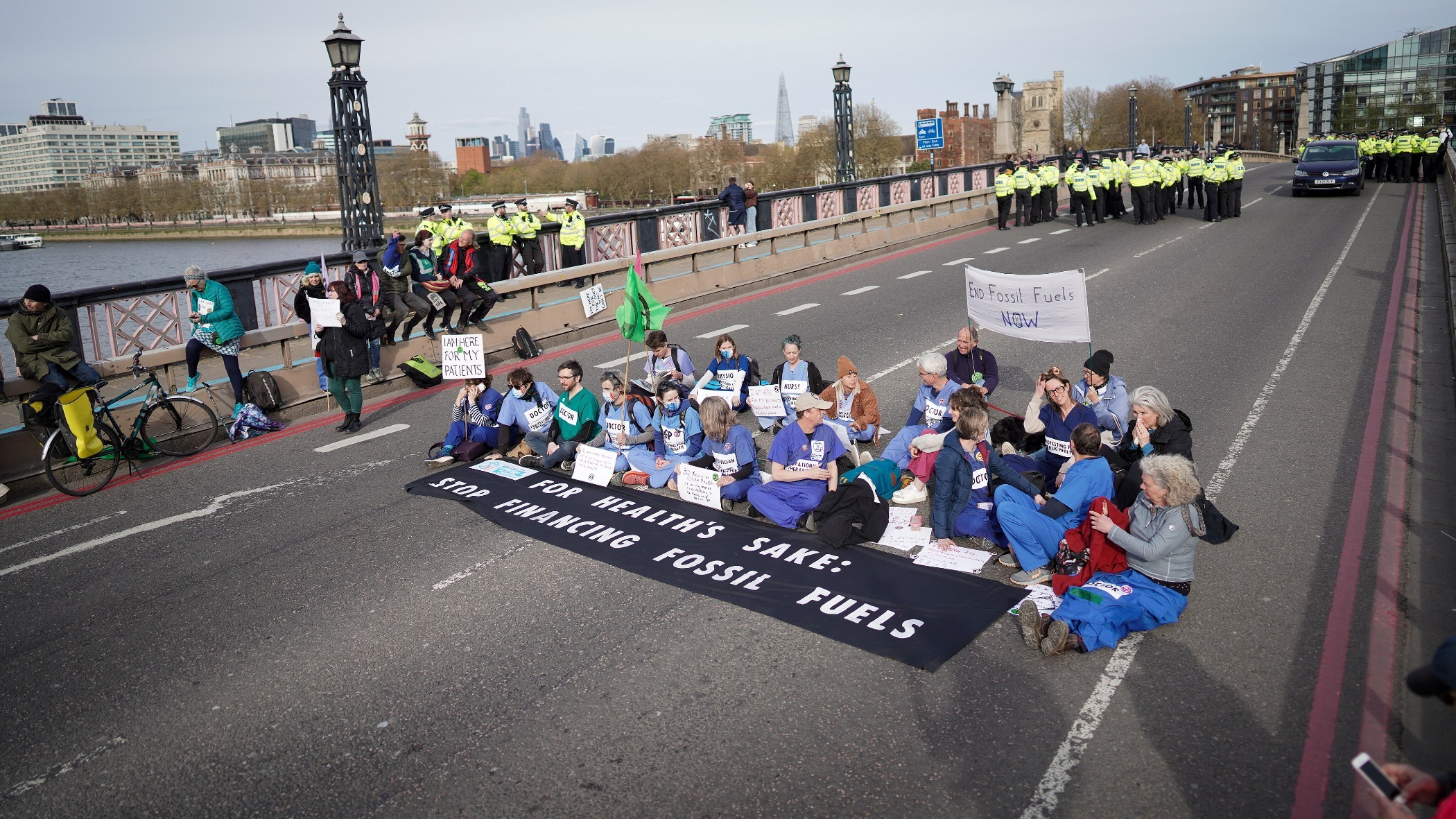
As New Humanist went to press last week, the Public Order Act had just become law, introducing new police powers to restrict protests in the UK. It comes on the back of high-profile demonstrations in recent years that have seen groups such as Extinction Rebellion, Insulate Britain and Black Lives Matter take actions such as blocking roads, airports and printing presses in a bid to raise public awareness and push politicians into action. Some of the new restrictions came into effect just days before the coronation of King Charles III, ahead of anticipated anti-monarchy protests.
The government says it “fully supports the right of individuals to engage in peaceful protest” but that the “guerrilla tactics” and “serious disruption caused by a small minority of protestors has highlighted that more needs to be done to protect the public and businesses from these unacceptable actions.” But if Rishi Sunak and his party “fully support” the right to protest, they’re doing an impressive job of hiding it. They already introduced new restrictions last year, under the Police, Crime, Sentencing and Courts Act. That act increased the instances in which police could intervene in protests. Intentionally “causing a public nuisance” – an offence which could cover peaceful actions like blocking the entrance to a building, or occupying a public space – is now punishable by up to 10 years in prison, and the jailing of peaceful protesters has already begun.
This new law goes further again. It introduces new criminal offences, including “locking on”, where protestors chain themselves to buildings or objects, a tactic that was famously used by the suffragettes in the 1900s. That is now punishable by up to six months in prison, an unlimited fine, or both.
Also newly criminalised are “obstructing major transport works”, “interfering with key national infrastructure” (the government has specifically mentioned airports and printing presses, both of which have been the sites of climate protests), and “tunnelling”, which is defined as “creating” or “being present” in a tunnel, “where such an act is causing or capable of causing serious disruption”. This last offence seems to specifically target anti-HS2 protesters, some of whom have occupied tunnels.
The law also allows magistrates to ban particular people from attending protests, and extends police powers, allowing officers to stop and search people without suspicion of any wrongdoing in and near protest sites. Under normal circumstances, police generally need to have “reasonable grounds” to suspect that someone is carrying an illegal item or something that could be used to commit a crime in order to stop and search them. Even then, the racial discrimination involved in that assessment of suspicion is well known and there is little evidence that it is an effective tool to fight crime. These efforts to pre-emptively clamp down on protests are deeply concerning.
The Lords rejected some of the most serious provisions – including a government bid to restrict the use of the right to protest on “an issue of current debate” as a defence in court. But this is not enough.
Human rights organisations, and some politicians and lawyers, have condemned the law as an assault on democratic freedoms. The UN High Commissioner for Human Rights, Volker Türk, called on the government to reverse the legislation. The new law imposes “disproportionate criminal sanctions on people organising or taking part in peaceful protests,” he said, and is “wholly unnecessary as UK police already have the powers to act against violent and disruptive demonstrations”. Four UN special rapporteurs on rights have also expressed “grave concerns”.
There is, unfortunately, little chance that the government will pay any attention to the international outcry. This regressive law is likely here to stay, with far-reaching consequences for our democracy.
This piece is from the New Humanist summer 2023 edition. Subscribe here.

